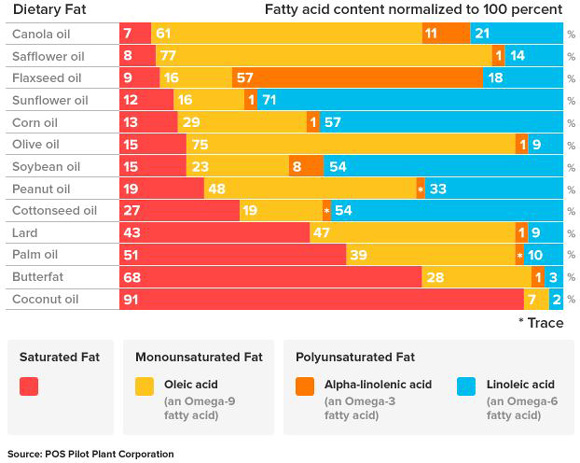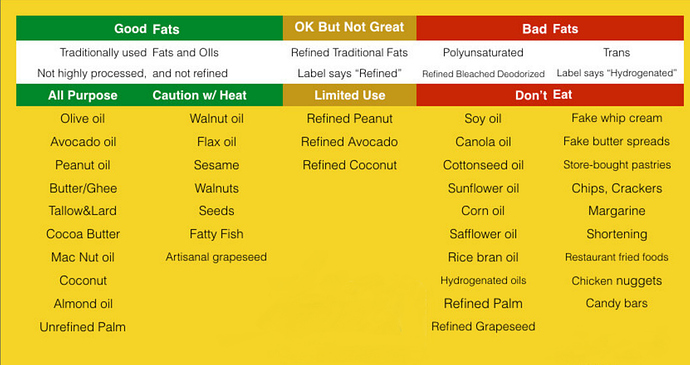Hi everyone,
I know, the usual guideline is that plant oils are to be avoided, because they have a poor Omega 6 to 3 ratio and are chemically extracted (hydrogenated). I have three question regarding two possible exceptions:
-
Phinney talks about safflower oil being kind of ok-ish. How is this warranted?
-
I hear bad things about canola oil. However, from what I understand there are differences between canola and rapeseed oil. Also, it seems that the Omega 6 to 3 ration isn’t that bad, is it? It’s roughly 2:1, which not optimal, but you get a decent amount of Omega 3, despite also absorbing some inflammatory Omega 6.
-
What about flaxseed oil? It has huge amounts of Omega 3, in relation to virtually no Omega 6. Is this then a healthy exception in the plant oil regime?

Thanks!
Simon


